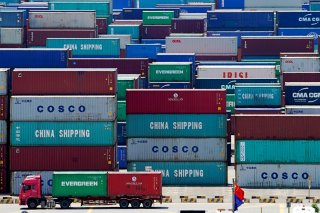Faced With Multiple Crises, the Chinese Economy is Slowing Down
China’s economy, wracked by crises ranging from power outages and flare-ups of COVID-19 to ideological crackdowns and the ailing health of the real estate sector, grew at its slowest rate in more than a year.
China’s economy, wracked by crises ranging from power outages and flare-ups of COVID-19 to ideological crackdowns and the ailing health of the real estate sector, grew at its slowest rate in more than a year, based on data released by the country’s official National Bureau of Statistics.
The data released on Monday showed that China’s GDP had grown at a rate of 4.9 percent in the third quarter—the slowest growth rate since the third quarter of 2020 when China was still recovering from the pandemic. This growth rate was slightly lower than most economists expected, according to polls conducted by Reuters and AFP, where the average expectations were 5.2 percent and 5 percent, respectively.
While a 4.9 percent growth rate would be excellent news for most developed countries, it is a decrease from China’s Q2 growth rate of 7.9 percent, and its astonishing Q1 growth rate of 18.3 percent.
These numbers are not to be expected in normal years—they compare a quarter in 2021 to the same quarter in 2020, meaning that the first three months of 2021 are being compared against the first three months of 2020 when the Chinese economy ground to a halt as curfews forced nearly all citizens indoors. Nonetheless, the remarkable speed of China’s recovery from the pandemic, which has been heralded as a major victory by the country’s ruling Communist Party, is reflected in its growth numbers.
The Communist Party is also partially responsible for the current slowdown. In recent weeks, Chinese regulatory authorities have cracked down on large corporations such as Alibaba and Didi that they deem insufficiently loyal to the government, wiping out trillions of yuan in value. Beijing has also slowed down industrial production and cut electricity generation in order to meet climate targets, leading to power cuts and a slowdown of the country’s manufacturing industry.
Another significant cause of the decreasing growth has been the instability of Chinese real estate giant Evergrande, which has been revealed to have debts totaling more than $300 billion, and fears from Chinese investors that the company could default have led to a slowdown in property investment.
The Chinese government has publicly maintained optimism, arguing that while industrial output had slowed, consumer purchases had increased, and virus cases continued to decline.
Trevor Filseth is a current and foreign affairs writer for the National Interest.
Image: Reuters

